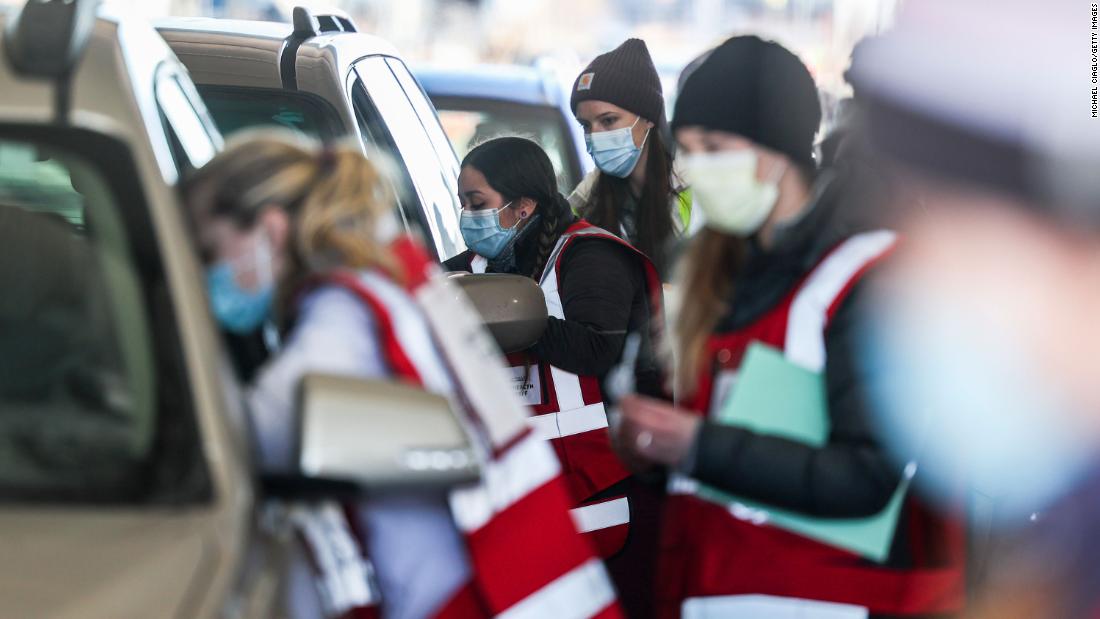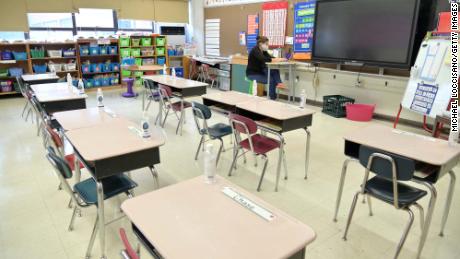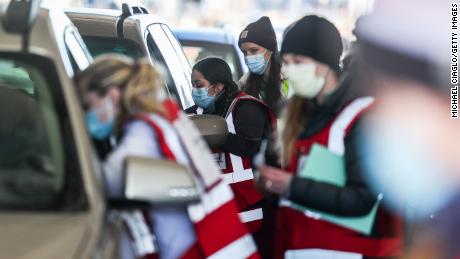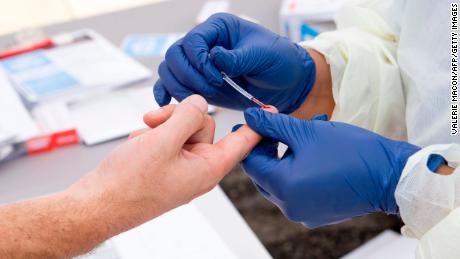Another Covid-19 surge hangs in the balance
“The question that hangs in the balance right now is, will we have a fourth surge?” the former director of the US Centers for Disease Control and Prevention Dr. Tom Frieden told CNN’s Wolf Blitzer on Thursday. “Every uncontrolled spread increases the risk that there will be dangerous variants that can be more infectious, more deadly, or can escape from immune protection.”
The point is to keep doing what has been working, Friedan said. “To track very closely and recognize masking up is here to stay for many more months and avoiding sharing indoor air with others is very important,” he added.
Such measures can help avoid the potential surge feared from the coronavirus variant first identified in the UK that is believed to be more transmissible, said Francis Collins, the director of the National Institutes of Health.
Ho said Thursday this could result in a loss of vaccine efficacy, although studies indicate vaccines may still provide strong protection against variants. He added that the variant could be more contagious, but his team does not have evidence to prove that at this time.
States loosen restrictions on salons, stadiums and socialization
Despite caution about paying too much heed to the downward trends of the past few weeks, many states are loosening their restrictions.
“We should not in any way assume that that downward slope is inevitable. It could start back up again,” Collins said.
For example, by Monday, Wyoming barber shops and salons, including hair, nail and tattoo parlors, will no longer have capacity restrictions, Gov. Mark Gordon said in a statement. Over the next month, the state will also ease other health restrictions, including allowing buffets to resume operation and limiting gatherings to 50 people instead of 25.
In response to “sustained decrease in case counts,” the City of New Orleans is also implementing changes: Beginning on Friday the city is increasing gathering-size limits to 75 people indoors and 150 outdoors, as well as raising table limits and increasing indoor and outdoor stadium capacity limits to 15% and 25%, respectively.
A particular point of contention has been the reopening of schools: While some officials and parents think the need to have students back in the classroom is urgent, there are teachers who worry it is too soon and not yet safe enough to open campuses.
In Virginia, the state Senate on Thursday approved a bill that, if signed by Gov. Ralph Northam, would require each school board to offer a full-time in-person instruction option to students enrolled in the local school division, with a few exceptions.
Schools can return to temporary remote instruction if the school board and local health department determine the transmission level at the school is high, according to the bill.
Officials extend vaccine eligibility and availability
As some states ease restrictions, others are opening up vaccine eligibility to more of their residents, including teachers.
Starting March 15, teachers and other essential workers in Missouri will be eligible for the vaccine, Gov. Mike Parson said Thursday.
As well as educators and staff of K-12 students, Georgia Gov. Brian Kemp announced Thursday that adults with intellectual and developmental disabilities and their caregivers and parents of children with complex medical conditions will be eligible for vaccines on March 8.
And as of Thursday, all people who are older than 16 and have certain comorbidities are eligible for the vaccines in Utah, Gov. Spencer Cox said.
“We’re prioritizing these individuals, again, based on age and these underlying comorbidities, because they are the greatest risk of hospitalization or death,” Cox explained, pleading with Utahans not to jump ahead in line and assuring them that they have so many more vaccines coming soon.
Officials have been working over the past months to speed up and optimize the distribution of vaccine doses as states clamor for more to meet the increasing demand.
If Johnson & Johnson’s single-dose vaccine gets FDA emergency use authorization this weekend, President Joe Biden said it will be rolled out immediately.
“The FDA will decide on emergency use authorization of a vaccine based on science, not due to any political pressure from me or anyone else, no outside factors,” Biden said. “What I will say to the American people is this, if, if the FDA approves the use of this new vaccine, we have a plan to roll it out as quickly as Johnson and Johnson can make it.”
The existing vaccine from Pfizer could also become easier to distribute quickly, thanks to the FDA agreeing Thursday to allowing it to be transported and stored for up to two weeks at “conventional temperatures” typically found in pharmaceutical freezers.
The company and its partner Biotech are also responding to the growing threat of variants with new testing to see how well a third dose protects against them.
CNN’s Christopher Rios, Lauren Mascarenhas, Nadia Kounang, Andy Rose, Jamiel Lynch, Rebekah Riess, Lindsay Benson, Artemis Moshtaghian, DJ Judd, Jacqueline Howard and Amanda Sealy contributed to this report.
![]()








